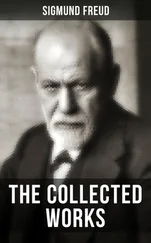Perhaps it was more than a few minutes, but we were crossing something, “the line”? What line? We were coasting along in the Bay, along the shore of Europe, but Europe was out of sight, to one’s left as one faced the prow. I had laughed at Dr. Ellis with his inherited ship-captain language, starboard, larboard, though as a school-girl I had been meticulous enough myself and knew my port and starboard, hard alee and all the rest. All that had left me. I was satisfied with right and left, front and back. “Shall we go forward?” Bryher would say. Well — shall we go forward?
The wind must have fallen very suddenly. Perhaps too, here nearing Portugal, the night would come with that un-Nordic balm and suavity that I sometimes missed in the close sky of winter England. Anyway, there was a violet light over the sea.
I must get Bryher, I thought; Bryher must not miss this, but as I am about to turn back I see Mr. Van Eck standing by the deck rail, to my right, as I stand there at the head of the ship stairs.
Well — he sees me. I must at least say good-evening. I notice to my surprise that he is somewhat taller than myself. I had not thought he was quite so tall, though he stood a good military height, with broad shoulders, rather square in build though not over-heavy. He is taller than I thought him. I must not stare at Mr. Van Eck. I am always afraid he will catch my eyes focused, in some sort of uncontrollable fascination, on that curious deep scar over his left eyebrow. All the same, one cannot in decency not meet the eyes of the person one is greeting. His eyes are uncovered; Mr. Van Eck wore thick-rimmed glasses.
His eyes are more blue than I had thought, it is mist-blue, sea-blue.
His hair at his temples is not so thin as I had imagined. Mr. Van Eck had told me he was forty-four or would be on the 1oth of March. I am September 10, so we were, as the astrological charts show, not in opposition, the Fishes being opposite Virgo. But we are in the straight line of affinity. I did not tell him the date of my birthday, but I worked it out; I was thirty-three, and when Peter Van Eck was forty-four in March, I would still be thirty-three until the following September.
He is taller. He is older — no, he must be younger. It is near evening, it is this strange light. But the light is not strange.
One cannot stare. But it is certain the scar is not there.
On his right as he stands now facing me, there is the coast of Europe — Portugal? On his right as he stands there, there is an indented coastline. “Land,” I said. I did not in my thought realize that land, were there land, would be on the other side of the boat. Or had the boat turned round? Or were these some off-lying islands of which I in my ignorance knew nothing? There were dolphins.
Yes, there were dolphins. But there had been talk of dolphins, sea-pigs someone called them, perhaps the engineer on his way to Euboea, who sat next to Dr. Ellis at table. The four of us sat, right, left: Bryher and myself were next to the captain at the one long table. Next to Bryher was Dr. Ellis; to my left at table was Mr. Van Eck.
The dolphins are joined by other dolphins; they make a curiously unconvincing pattern, leaping in rhythmic order like crescent moons or half-moons out of the water, a flight or a dance of dolphins. Yet, they are dolphins. Didn’t the engineer on the way to Euboea say he had been looking for a sea-pig?
We are in March, Pisces, the Fishes, but I don’t think I thought that.
I don’t know what I thought. I thought, Mr. Van Eck for some reason (perhaps he is a secret agent) “makes up.” Could he rub in or put on that scar? Well, perhaps it wasn’t Mr. Van Eck who “made up” as a secret agent; perhaps the secret agent made up as Mr. Van Eck.
No, I did not know this, think all of this out, at that exact moment, in February. Yes, it was February. It was not yet March; February is Aquarius, the house of friends. .
March 13
The Professor said he was curious to see how the story would proceed, now we had the frame.
I too was curious. If the Professor could not solve my problem, no one could. I told him how the first evening out I was very upset as I had on my left a deaf old Canadian lady who was on her way to Athens to visit a niece who had married a Greek lawyer. I am particularly unhappy when I have to raise my voice in speaking and I visualized having to carry on polite table talk in this strained and unnatural manner, the whole voyage out. Even so, it would not have mattered so much if the whole table had not appeared to stop their buzz of conversation every time I lifted my voice to make some inane remark or in politeness tried my best to answer noncommittally when the old lady asked me about my plans and why was I on this boat and how had I managed to get on it?
I had not then distinguished the Alexandrian family, or I did not know that they were on the way to Alexandria — “Alex” the big boy called it. It was “Alex” and “Gib” too, with the engineer and a missionary (I later gathered) who sat within, as it were, hailing distance. But neither the missionary nor the Alexandrian tobacco merchant (as I afterwards found he was) nor the engineer bound for Euboea helped me in the least in my predicament.
It seemed a miracle, after two nights in this anguish, to find I had another companion.
It was Mr. Van Eck. I don’t know how he got there. The old lady, it is true, had retired to her cabin for the rest of the trip. I suppose seasoned travelers, as all these seemed to be, know how to arrange these things. To me it was little less than a miracle to find, the third day, instead of the deaf old lady, a sympathetic, slightly middle-aged man-of-the-world, easy and affable, making witty remarks sotto voce about our fellow passengers.
I was fascinated with Peter Van Eck. He had traveled widely, had lived in Greece for some time, had worked on excavations in Crete, was an architect by profession and he said an artist by choice but he had had little choice in the matter. He had been in Egypt at one time, helping to restore some Caliph’s or Khedive’s shrine or tomb. These words were new to me. He said something was “Khedival” to Bryher across the table; I don’t remember what. I only remember hearing the word for the first time.
But I had my reservations. An asbestos curtain had dropped between me and my past, my not-so-far-past bitter severance from love and friendship.
I repeated, “We were three weeks on the way.” The Professor said, “So-o slow?”
We ran away from Dr. Ellis at Algeciras and went with Mr. Van Eck for a walk through a cork forest; the ground was starry with February narcissus. This was Mr. Van Eck, it was not the Man on the boat, but I had then neither the wit, the temerity, nor the courage to work this all out. If Mr. Van Eck was the Man on the boat, then I lost something. If Mr. Van Eck was not the Man on the boat, then I lost something. I don’t know why, but at Malta I told Bryher that I did not want the four of us to drive out to the old town as Mr. Van Eck suggested. I think I wanted to be alone with Bryher, to think out something that I did not question, or that I did not put into a question. To answer the question meant loss of one or the other, Mr. Van Eck or the Man on the boat.
Sometimes Mr. Van Eck was the Man on the boat but he was not the Man on the boat that I met the first time in the Bay. I should have known. I did know, though I could not yet admit it, that not only were the dolphins unconvincing but the sea itself was impossible. That is, it was all right at the time but you do not have a quiet sea and a boat moving with no tremor, with no quiver or pulse of engine, on a sea that is level yet broken in a thousand perfectly peaked wavelets like the waves in the background of a Botticelli. No, it was all wrong.
Читать дальше











